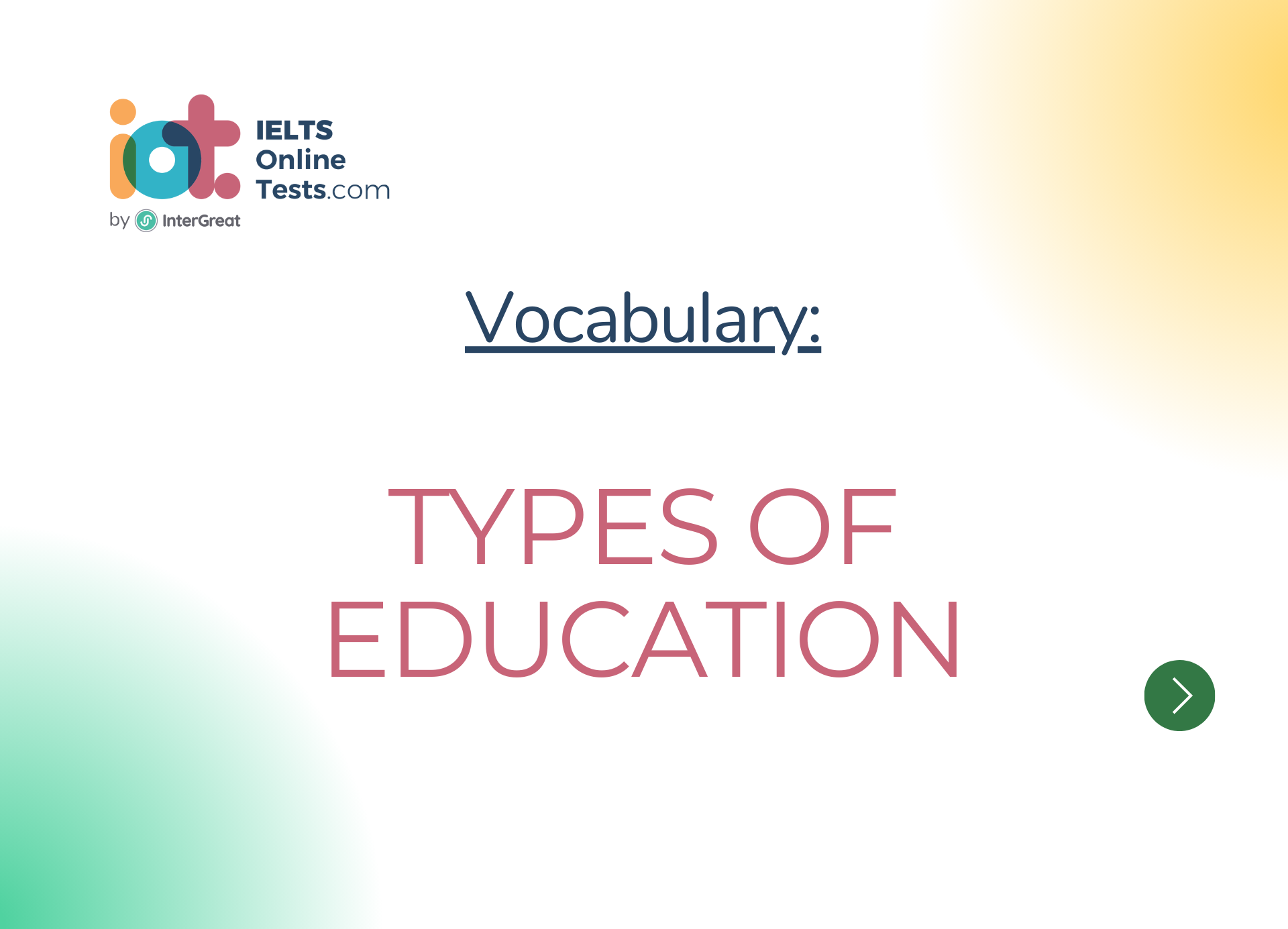
Types of education
Here's a lesson on vocabulary related to "Types of Education" for the IELTS band score 3.0-4.5:
I. General Education Terms:
Education: The process of acquiring knowledge, skills, values, and attitudes through teaching and learning.
Formal education: Structured and organized education provided in schools, colleges, and universities.
Informal education: Learning that occurs outside of formal educational settings, such as through experiences, interactions, or self-study.
Lifelong learning: The continuous process of acquiring knowledge and skills throughout one's life.
Literacy: The ability to read and write.
II. Levels of Education:
Primary education: The first stage of formal education, typically for children aged 5 to 11 years.
Secondary education: The stage of education following primary education, usually for students aged 11 to 18 years.
Tertiary education: Education at the college or university level, including undergraduate and postgraduate programs.
Vocational education: Training and education that prepares individuals for specific occupations or trades.
Adult education: Education and training programs designed for adult learners.
III. Types of Schools:
Public schools: Schools funded and operated by the government, usually free or subsidized.
Private schools: Schools that are privately funded and managed, often with tuition fees.
International schools: Schools that offer an international curriculum and cater to students from various countries.
Boarding schools: Schools where students live and study on the premises, away from their homes.
Online schools: Schools that deliver education through online platforms and virtual classrooms.
IV. Specialized Educational Institutions:
Colleges: Institutions that offer undergraduate programs and confer degrees.
Universities: Higher education institutions that offer a wide range of undergraduate and postgraduate programs.
Technical institutes: Institutions that provide specialized training in technical or vocational fields.
Language schools: Schools that focus on teaching foreign languages to students.
Art schools: Institutions that provide specialized education in various forms of visual or performing arts.
V. Alternative Forms of Education:
Homeschooling: The practice of educating children at home, typically by parents or tutors.
Distance learning: Education where students and instructors are physically separated and communicate through online platforms or correspondence.
Montessori education: An educational approach that emphasizes self-directed learning and hands-on activities.
Experiential learning: Learning through direct experiences and practical activities.
Open learning: Flexible learning programs that allow students to study at their own pace and schedule.
VI. Educational Support Services:
Academic advising: Guidance and support provided to students regarding their academic goals and progress.
Tutoring: One-on-one or group instruction to help students improve their academic performance.
Career counseling: Guidance and assistance provided to individuals in making career-related decisions.
Student services: Support services offered to students, such as counseling, housing, and extracurricular activities.
Educational technology: The use of technology to enhance teaching and learning experiences.
Remember to practice using these vocabulary words in sentences and conversations to improve your understanding and fluency in English.




